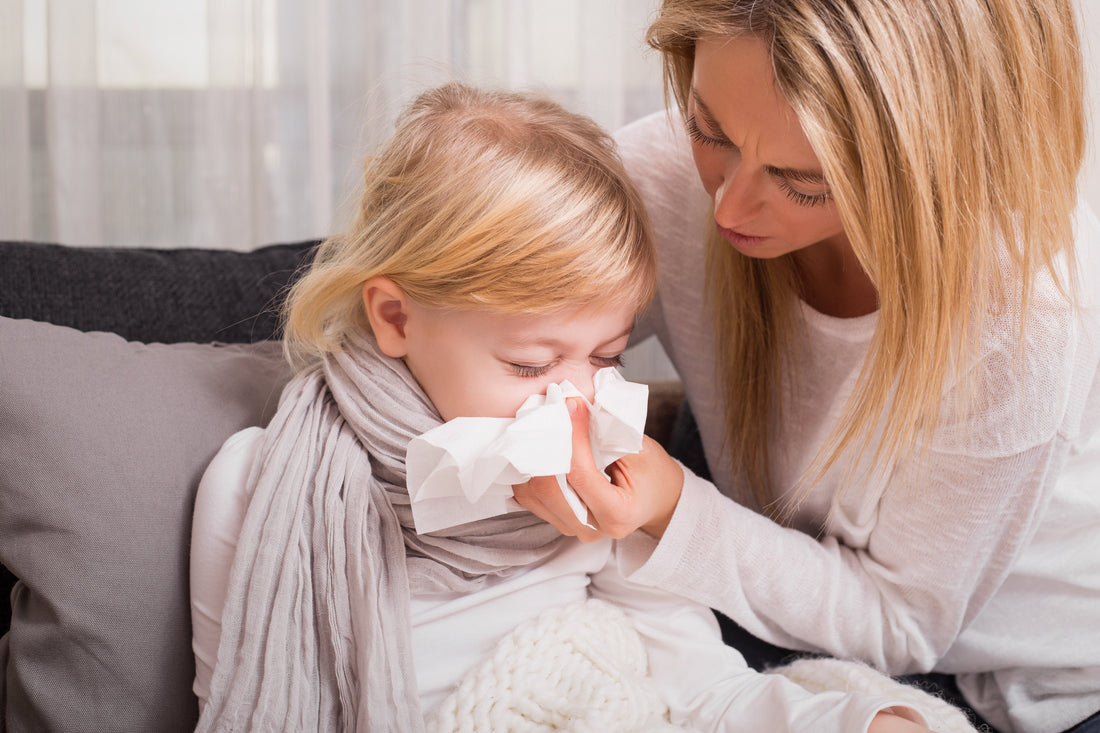Parents' Guide to Flu Season 21-22: Prevention & Tips To Prepare
| updated:Share

Flu season is officially upon us. If the virus has yet to hit your child’s school or preschool, it will, whether you are ready or not. Short of quarantining your family at home, there is little you can do to avoid flu germs entirely. However, you can reduce yours and your loved one’s chances of getting sick by taking precautionary measures ahead of time. Below is a brief guide of everything you need to know about flu season along with tips and advice for how to boost your immunity and prevent germs from taking your family down.
When Does Flu Season Start?
Flu season spans most of the fall, winter and spring months. According to GoodRx, flu season technically begins in October and ends in May. Peak flu activity, though, occurs between December and March.
It’s important that you know when flu season begins and ends, as well as when to expect peak flu activity to take place, as it can help you prepare and make important decisions regarding your immunity. One important decision you will have to make is whether to get your flu vaccine and when. You can also stock up on immune-boosting supplements, appropriate medications and flu-friendly foods and beverages, such as chicken noodle soup and Pedialyte.
How To Boost Immunity
Among all the ways to prepare for flu season, strengthening your immune system takes first place. Aside from getting the flu vaccine, strengthening your immune system is something you can do at home, and with a few easy lifestyle changes. Some top tips that can drastically improve your immunity are as follows:
- Get Plenty of ZZ’s: Studies show that there is a strong link between inadequate sleep and weakened immunity. Adequate sleep not only boosts your immunity but also, research shows the body better fights illness when it’s at rest. Adults should aim for between seven and nine hours of sleep, while younger children need up to 14.
- Get Moving as a Family: If you want your family to stay healthy, research suggests taking a walk together each night. Moderate exercise can help reduce inflammation, help immune cells regenerate and improve the efficacy of vaccines.
- Stay Hydrated: Water may not necessarily boost your immunity, but dehydration can take a toll on it. The effects of dehydration can increase your susceptibility to illness. A good rule of thumb is to drink water or tea when you’re thirsty and to encourage your little ones to do the same.
- Maintain a Healthy Diet: A diet rich in vitamins and minerals and proteins and whole grains can equip your body with the tools and energy it needs to fight off disease.
You may also want to consider supplementing your child’s diet with organic vitamins and minerals, which can increase your peace of mind.
School & Daycare Flu Season Tips
Unfortunately, you cannot go to school with your children to ensure they’re doing their part to keep themselves healthy. You can, though, instill in them the knowledge they need to manage the task themselves. Some vital tips to teach your littles are as follows:
- Wash your hands with warm water and soap. Lather for 20 seconds before rinsing.
- Keep your hands away from your face.
- Cough and sneeze into the crook of your elbow or a tissue.
- Wear a mask when sick and/or when around individuals who have outward symptoms of illness.
Also, while you want to raise a child who believes that sharing is caring, you do want to teach them that certain items are breeding grounds for germs. Items you should encourage them to never share include cups, straws, napkins or utensils.
It is almost inevitable that you and/or your loved ones will encounter flu germs at some point between now and March. However, that does not mean that you or your loved ones have to let the virus disrupt your lives. Use the above tips, and a few other safeguards, to protect your and your children’s health this coming season.
References: https://www.goodrx.com/conditions/flu/when-does-the-flu-season-end,https://www.healthline.com/nutrition/how-to-boost-immune-health#1.-Get-enough-sleep


